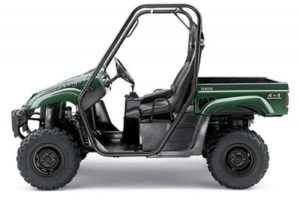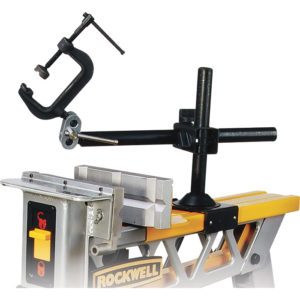Tradesmen with conditions of the spinal cord such as spinal muscular atrophy or traumatic injury rely heavily on assistive technology to accomplish necessary tasks. Mobility around the worksite and accessing the work station are two major barriers to be addressed. Solutions for those working on rough terrain vary from all-terrain power wheelchairs to large 4-wheel-drive pickup trucks to heavy-duty 3-wheel scooters.
The all-terrain wheelchairs such as the Hunter work well for construction inspectors or insurance adjusters to use on rough terrain. A heavy duty 3-wheel scooter cannot handle the extremely  rough terrain, but it will fit through residential doors and into small areas while still providing good outdoor mobility. The pickup truck could be used by farmers or log buyers to haul goods and access distant rough terrain.
rough terrain, but it will fit through residential doors and into small areas while still providing good outdoor mobility. The pickup truck could be used by farmers or log buyers to haul goods and access distant rough terrain.
Workers with spinal cord injuries cannot stand up to reach work benches and tools, and may also have impaired arm strength or ability to grip tool handles. Accessing the workstation for someone with a spinal cord impairment can be helped in various ways. Adjustable height carts and tables allow the worker to reposition the workstation for his ability, without needing to stand up, stoop, or kneel. Hoists or cranes are used to lift heavy objects into place on the work table or onto trucks. And finally, highly adjustable clamps and vises securely hold parts and materials when a worker cannot hold them by hand.


